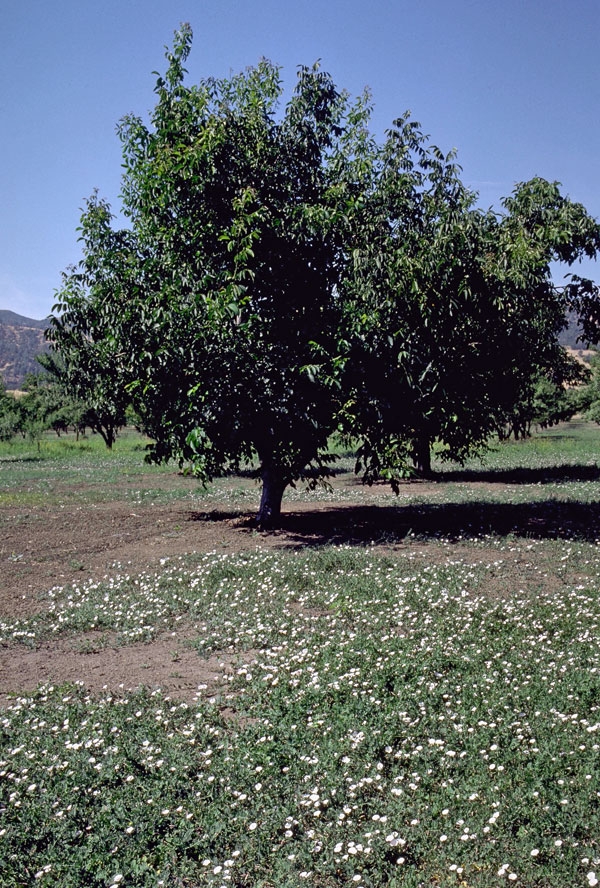
The most effective organic approach to weed control is a combination of cultural practices and organic herbicides, said John Roncoroni, UC Cooperative Extension advisor in Napa County, at a pear weed control field meeting.
"This is the wood mulch from last year," Roncoroni pointed out at the field day. "As you can see, the grass is growing on the edges, but it's held up pretty well. This is after a year, but it will break down."
Roncoroni is testing the use of spot applications of organic herbicides in combination with mulches.
"Bindweed is pushing through the wood chip mulch," Roncoroni said. "The mulch is a foot deep, but the bindweed rhizomes are six feet deep."
Rachel Elkins, UCCE advisor in Lake and Mendocino counties, also spoke at the field day. She advised cleaning up weeds conventionally and then converting orchard ground management to organic methods.
"You shouldn't have any weeds within two or three feet of young trees," Elkins said. "It's like growing two crops - you need enough water and nitrogen for the trees and the weeds.
Yuba-Sutter almond harvest prices better this year
Ashley Gebb, The Appeal Democrat
The 2012 almond harvest is expected to be smaller than last year for some farmers, but hopes are for higher prices.
"The crop is not all the way in, so this is strictly rumor, but it seems the crop is a little bit off so price seems to be up a bit, which is good for growers," said Franz Niederholzer, UCCE advisor in Yuba and Sutter counties. "I'm not sure where it will work out with increase in price versus loss in income for reduced yield."